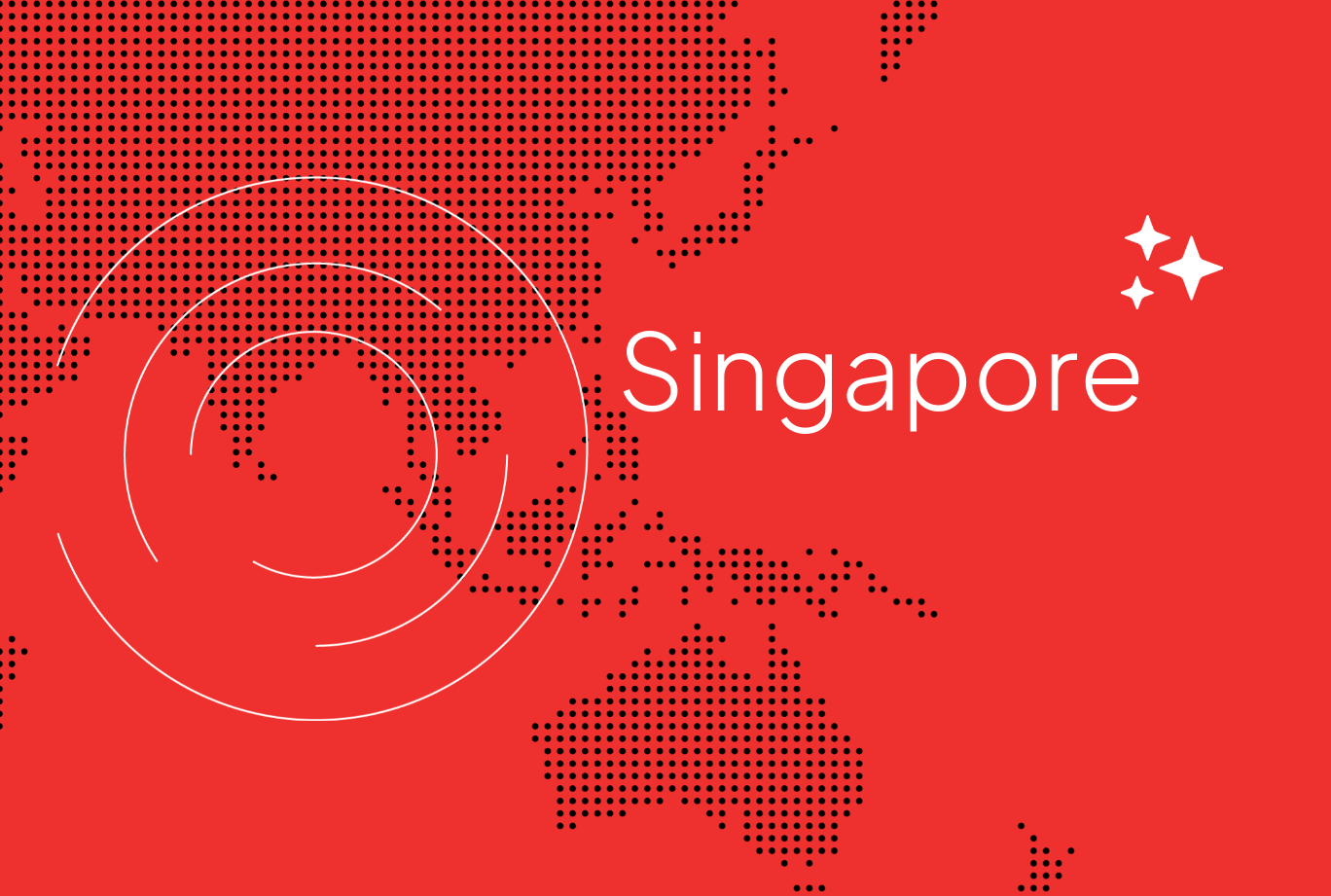Singapore's AI governance regulations: Requirements and governance insights

Singapore's motto, "Majulah Singapura," translates to "Onwards, Singapore" — a philosophy that extends to the nation's leadership in AI governance. With forward-thinking approaches at its core, Singapore has established itself as a global AI governance leader, cited among global leaders in AI innovation and governance frameworks.
Recent developments throughout 2024 and early 2025 have further solidified Singapore's position as a governance innovation hub.
In 2019, Singapore published the first National AI Strategy (NAIS) and pioneered the Model AI Governance Framework. The government's commitment remains strong with a $1 billion investment over five years targeting computing infrastructure, talent development, and industry advancement.
For multinational organizations operating in Asia-Pacific markets, understanding Singapore's evolving AI governance approach has become essential for regional compliance strategy and competitive positioning.
Singapore's sector-specific approach to AI governance
Singapore maintains its approach of no comprehensive AI legislation, preferring targeted sectoral regulation. Rather than issuing sweeping AI regulation that covers all industries, Singapore continues to take a sectoral approach, with individual ministries, authorities, and commissions publishing updated regulatory compliance guidelines and regulations.
This agile approach remains under active review and may adapt as risks or international norms change.
Financial services
The Monetary Authority of Singapore (MAS) released substantial updates to AI governance requirements in December 2024, which are now mandatory for regulated financial institutions. Building on the original Veritas framework established in 2019, MAS introduced "Artificial Intelligence Model Risk Management" guidelines that establish three mandatory focus areas:
- Oversight and governance of AI: Board-level responsibility for AI risk strategy and implementation oversight
- Key risk management systems and processes: Comprehensive frameworks for identifying, assessing, and mitigating AI-related operational risks
- Development, validation and deployment protocols: Standardized processes ensuring AI systems meet regulatory standards before deployment
These represent the most significant regulatory developments in Singapore's financial AI governance since the initial Veritas framework was launched five years ago.
Health
The Ministry of Health's AI in Healthcare Guidelines continue to support patient safety and trust in healthcare AI applications. These guidelines provide comprehensive recommendations for the safe development and implementation of AI-Medical Devices across clinical environments.
Info-communications and media: Global AI Assurance Pilot
The Info-communications Media Development Authority (IMDA) and Personal Data Protection Commission (PDPC) have maintained their leadership position with significant developments.
Most notably, IMDA and AI Verify Foundation launched the Global AI Assurance Pilot in February 2025 to help codify emerging norms and best practices around technical testing. This builds on AI Verify, the AI governance testing framework that validates AI system performance against internationally recognized principles through standardized tests.
Streamline AI compliance tracking
Discover how automated compliance monitoring helps organizations maintain alignment with Singapore's evolving sector-specific requirements across multiple jurisdictions.
Read moreKey aspects of Singapore's national AI strategy
The release of ChatGPT in late 2022 and subsequent generative AI developments have continued to alter the AI ecosystem. As a result, Singapore's updated national AI strategy (NAIS 2.0) maintains its foundational goals while adapting to emerging realities.
At its foundation remain two core objectives:
- Excellence in AI advancement: Pursuing field leadership while maximizing economic value creation across sectors
- Confident AI adoption: Empowering individuals, businesses, and communities to leverage AI technologies with appropriate discernment and trust
Singapore's proactive framework development positions the nation to capitalize on fast AI adoption across the region while maintaining governance standards that attract international investment.
In practice, this enabler-driven strategy is increasingly reflected at the organizational level worldwide.
As Maike Scholz, Group Compliance and Business Ethics at Deutsche Telekom, notes: "Responsible AI has now become part of our operations." This kind of operational integration is precisely what Singapore's evolving framework aims to support, embedding responsible AI as a core organizational practice rather than a regulatory afterthought.
The NAIS framework continues working toward three systems through "enablers":
- Activity drivers: Industry, government, and research collaboration that accelerates practical AI implementation
- People and communities: Talent development, capability building, and strategic placemaking initiatives
- Infrastructure and environment: Computing infrastructure, data accessibility, trusted regulatory environment, and thought leadership
The strategy statement also outlines actions that Singapore will undertake across these systems and enablers, including:
- Strengthening Singapore's AI startup ecosystem
- Upskilling the workforce
- Unlocking government data for use cases that serve the public good
- Maintaining a pro-innovation regulatory environment for AI while ensuring appropriate guardrails
- Establishing Singapore as an ambitious and pragmatic international partner on AI innovation and governance
- Accelerate public sector adoption of AI
- Update national AI research and development plans
- Attract world-class AI creators to Singapore
- Boost the AI practitioner pool
Model AI Governance Framework for Generative AI: evolving dimensions
IMDA's updated Model AI Governance Framework for Generative AI maintains nine core dimensions while incorporating lessons learned from generative AI deployment:
- Accountability by assigning responsibility to stakeholders during AI development
- Ensuring trusted data sources for the quality of data used in AI models
- Trusted development and deployment through transparency and disclosure
- Incident reporting for timely notification and remediation
- Testing and assurance by implementing third-party testing based on common AI standards
- Security by addressing emerging threat vectors
- Developing technologies to improve transparency for content origin and creation
- Safety and alignment research to accelerate responsible AI investment
- Leveraging AI to benefit society through democratized access and sustainable systems
Implementation guidance has evolved based on extensive deployment experience across both public and private sector pilots. Singapore's framework now emphasizes practical governance integration rather than theoretical compliance, requiring organizations to demonstrate ongoing responsible AI practices, rather than merely undergoing one-time assessments.
How AI technology transforms governance compliance
Singapore's mostly voluntary compliance model creates distinct technology requirements compared to mandatory regulatory frameworks. Organizations need solutions that automate risk identification, streamline compliance monitoring, and provide audit-ready documentation.
This operational reality reflects a broader challenge facing multinational organizations. As Thomas Daemen, Director — Corporate, External and Legal Affairs at Microsoft Asia, observes: "AI might feel new, but it's not anymore. At this point, everyone is deploying it, whether they realize it or not. The real challenge now is operationalizing it effectively and ethically."
To support this practical implementation approach, organizations require technology infrastructure that can effectively translate Singapore's principles into operational workflows. With this objective in mind, best-in-class governance tools like Diligent provide:
- Automated risk management that identifies compliance gaps across AI development lifecycles
- Real-time monitoring capabilities supporting Singapore's continuous assessment requirements
- Multi-stakeholder collaboration tools addressing the distributed accountability model that Singapore's framework emphasizes
- Audit trail generation that provides comprehensive documentation for regulatory review
AI-powered audit assurance
Take a proactive stance against AI governance risks with comprehensive visibility and strategic insights.
Read moreFAQs about Singapore’s AI regulations
What are the key differences between Singapore's approach and other major jurisdictions?
Singapore maintains a voluntary, sector-specific framework, unlike the EU’s mandatory approach, for example. However, the government may consider comprehensive legislation if sectoral guidelines prove insufficient or international norms converge.
How should multinational organizations approach Singapore's AI governance requirements?
Organizations operating across multiple jurisdictions cannot rely on unified global compliance strategies. Singapore's voluntary framework requires separate implementation approaches focused on operational excellence rather than mandatory compliance. At the same time, you must maintain alignment with more restrictive requirements in other jurisdictions where your organization operates.
What are the practical first steps for implementing Singapore's AI governance framework?
Begin by establishing dedicated AI governance oversight with authority for strategic direction and risk management. Implement processes aligned with Singapore's core principles: fairness, explainability, transparency, and human-centricity. Utilize Singapore's official tools, including the Implementation and Self-Assessment Guide for Organizations (ISAGO), for ongoing evaluation.
How should technology solutions support Singapore's voluntary compliance model?
Technology companies must support multi-stakeholder risk assessment, flexible reporting mechanisms, and continuous monitoring capabilities. Unlike mandatory regulatory frameworks, Singapore's approach requires solutions that demonstrate governance excellence and competitive advantage rather than basic compliance documentation.
Ready to build AI governance infrastructures that support Singapore's framework? Schedule a demo to see how Diligent technology helps clients address multi-jurisdictional governance challenges.
